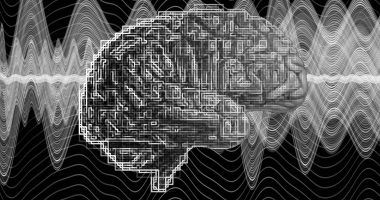
Older people can pick up new skills faster if doing so benefits other people, rather than themselves — unlike young adults, who learn faster when helping themselves.
This is the conclusion of a study by researchers from the Universities of Birmingham and Oxford who conducted tests involving so-called reinforcement learning.
This is the understanding we develop from assessing the positive outcomes from our previous choices — enabling us to adapt our decisions to our environment.
The finding that older people are more motivated to learn when it helps others could help experts find new ways to combat age-related cognitive decline, the team said.
The team also found that older people appeared more likely to have ‘grown out’ of psychopathic traits like a lack of empathy, perhaps explaining the results.


Older people can pick up new skills faster if doing so benefits other people, rather than themselves — unlike young adults, who learn faster when helping themselves, a study found
‘Reinforcement learning is one of the key ways in which humans — as well as animals and even plants — learn from and adapt to their environment,’ said paper author and neuroscientist Patricia Lockwood of the University of Birmingham.
‘We need to make decisions and learn all the time based on the positive or negative feedback we receive. This allows us to optimise our choices to choose the best course of action in the future from many possible alternatives.’
‘We find that older adults are worse than younger adults at learning from positive feedback on their own behaviour.’
‘However, surprisingly, when making choices that give positive feedback — money — to another person, older adults are just as good as younger adults.’
In their study, Dr Lockwood and colleagues recruited 152 participants — around half of whom were aged from 18–36, with the remainder whose ages ranged from 60–80.
Each participant took part in a series of tests in which they were asked to make choice between one of two symbols displayed to them on a computer screen.
Following each selection they made, the subject received feedback on their decision — and whether or not they had secured rewards points as a result.
In some rounds, points accrued meant nothing, while in others they translated into either money for the participants or for someone else.
The researchers found that the older group of participants were slower than the younger group in learning which choices were better when their selections had the potential to benefit themselves financially.
However — when they were making choices that had the potential to benefit another person — the older participants were seen to learn how to succeed in the game just as fast as the younger test subjects.
When points weren’t worth anything at all and there was no financial motivation, the team found that participants in both age groups learnt the slowest.
‘We recognise that in general, cognitive processes and learning ability tend to get worse as people get older,’ said paper author and neuroscientist Jo Cutler, also of the University of Birmingham.
‘So it’s really interesting to see that when making choices that will benefit others, older adults’ learning ability is preserved,’ she continued.
‘By better understanding what motivates older people in this way, we can contribute to strategies that promote healthy ageing.’
The full findings of the study were published in the journal Nature Communications.










